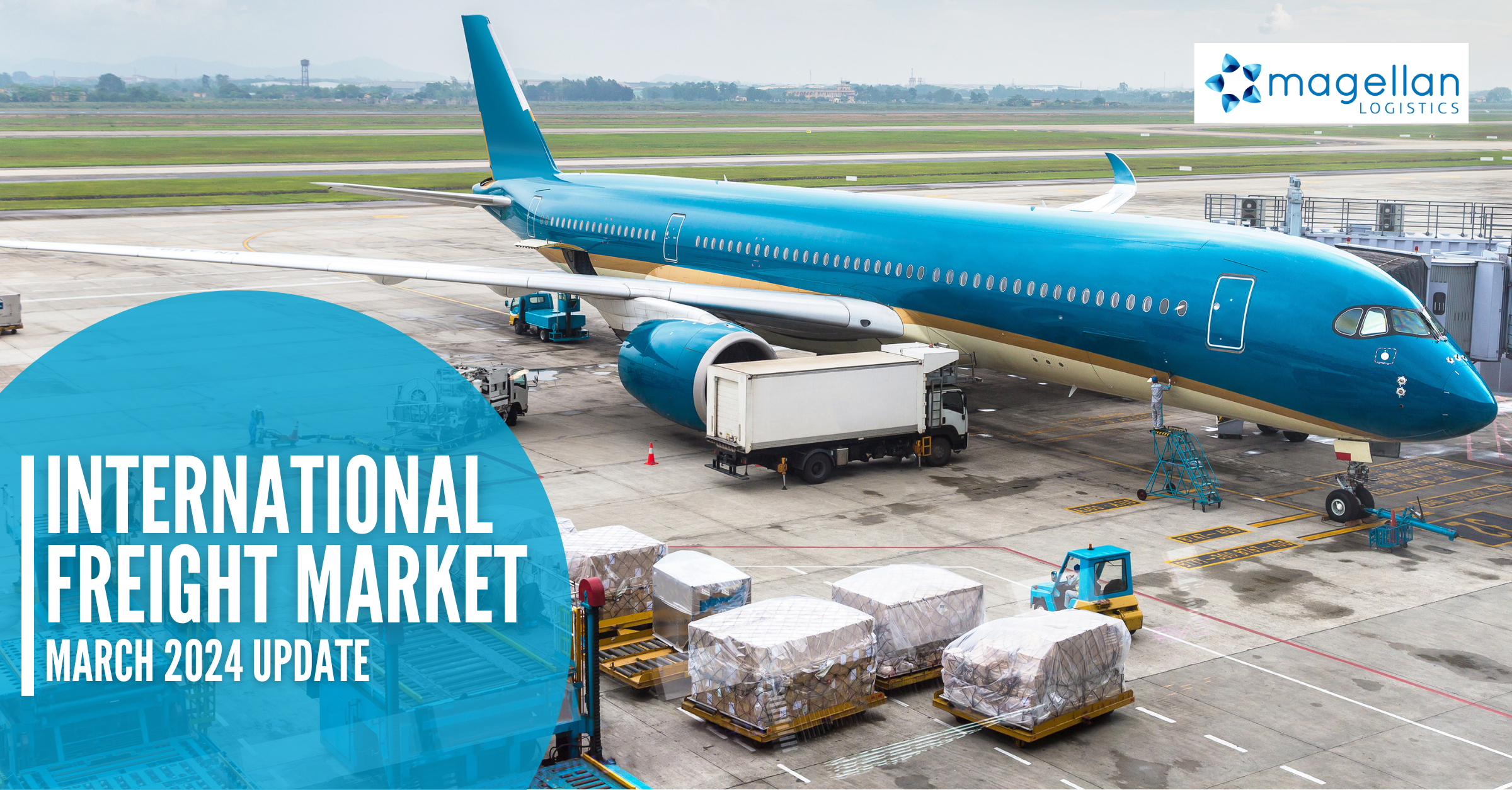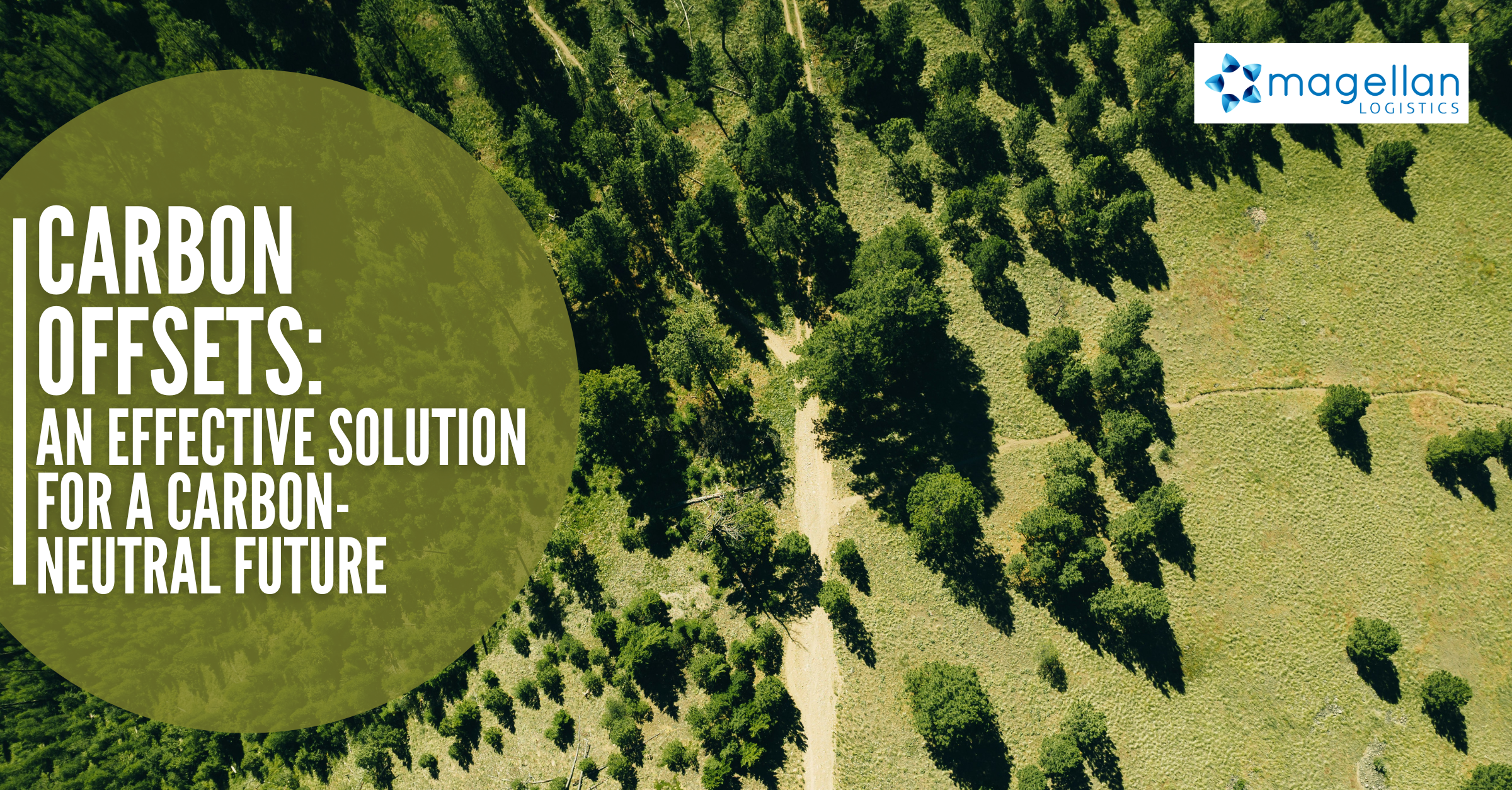This freight market update details the numerous challenges that importers and exporters in the Australian and New Zealand freight industries have faced in recent months, particularly those trying to reach markets beyond Asia. Issues like avoiding the Panama and Suez Canals, ongoing conflicts between DP World and the Maritime Unions of Australia, and a strike at DP World Brisbane have seriously disrupted container landside logistics.
Truck turnaround times have skyrocketed, leading to increased costs and delays for fleet allocators. ASC module failures and unavailability have become alarmingly frequent, further hindering operations. And to make matters worse, shippers are burdened with rising fees from DP World and Patrick.
However, amidst these challenges, there is a silver lining. The markets in North and South East Asia offer a beacon of hope, with no GRI declared for the current month and schedule reliability gradually restored.
Stay up to date with the latest developments in this freight market update. Let us navigate this complex landscape together and find practical solutions for your logistics needs.
Freight Market Update
Pricing
The freight market has witnessed significant fluctuations in recent weeks. According to Drewry’s World Container Index (WCI), container prices have dropped by 24%. However, compared to last year’s period, prices have soared by 71%. This increase is reflective of the extraordinary circumstances faced during the Covid-19 pandemic.
Production Manager’s Index (PMI)
The Production Manager’s Index (PMI) shows a positive trend regarding manufacturing output. January saw a growth in manufacturing output, with a PMI of 50.3, surpassing the crucial threshold of 50 for the first time in eight months. Despite the recovery, new export orders fell short of the 50 mark, indicating that global export slumps continue.
Enterprise Agreements / Industrial Action
Various industrial agreements between DP World and unions in Australia remain unresolved, leading to disruptions in operations. Additionally, container terminals have imposed limitations on container movements, resulting in delays and increased costs for landside container logistics. These unforeseen events and complications continue to impact operators handling container transport.
Equipment
Ongoing delays for returning empty containers throughout March and extending into April are anticipated.
Melbourne will require longer lead times due to significant infrastructure road construction as transport firms grapple with hold-ups near the port district.
Supply Chain Cost
Supply chain expenses continue to rise, causing concern among transporters and the government. The Freight and Trade Alliance (FTA) has been actively advocating for action to address this issue. However, despite acknowledgment from the government and the Productivity Commission, concrete measures have yet to be implemented. Recent announcements by DP World and Patrick Terminals about terminal access charges and levies further exacerbate the problem. The FTA and the Australian Peak Shippers Association have proposed strategies to the federal government, including recovering deficits from importers and implementing a Mandatory Code to regulate terminal access charges.
Equipment Shortage
Global box scarcity persists, and its impact is more pronounced in Australia due to the industrial action at DP World. Even after the cessation of strikes, the challenge remains since the terminals are still playing catch up. The priority is given to complete import and export containers, superseding the transportation of empty ones. In response to this scenario, carriers have temporarily halted container sales, and the rental charges from container leasing agents are on an upward trend.
Biosecurity Levy
The Federal Government is considering the introduction of a Biosecurity Protection Levy to offset the cost of protecting Australia’s agricultural production from exotic pests.
Panama Canal
The persistent drought in North America’s Gatún Lake, worsened by global warming, has caused water levels to drop significantly in the Panama Canal. As of February 2024, the lake is eight feet below the safe navigation mark for large cargo ships, leading to restrictions on weight and size. Changes to these limitations and extra costs are not expected until after April 2024.
Authorities are implementing a contingency plan to address the problem. The proposal involves constructing a new dam to create an extra lake to maintain the canal’s water levels. This development can increase daily crossings to around 50, accommodating 11 to 15 additional transits. When rainfall increases, the Panama Canal Authority expects transit volumes to normalise by September. While the number of daily transits won’t return to pre-pandemic levels, a gradual upsurge is expected by the end of May. These initiatives aim to optimise canal operations and support global trade.
Red Sea
The Red Sea remains a high-risk area for shipping due to ongoing disturbances. Shipping alliances have yet to resume voyages through these unstable regions. The disruptions have had broader economic implications, with global inflation projected to increase by up to 0.7% for core goods and 0.3% overall in the first half of 2024. Insurance premiums for war risk have surged by 900%, posing additional challenges for carriers. Recent attacks on vessels, such as the sinking of the Rubymar cargo ship, threaten local industries and the environment. Despite assurances from Houthi negotiators, incidents like these hinder commerce and highlight the need for increased security measures in the region.
Global Shipping Alliance Overview
The most prominent shipping companies worldwide are split into three main alliances:
- 2M: This consists of MSC and Maersk (set to dissolve from January 2025).
- Ocean Alliance: It includes Cosco, CMA CGM, Evergreen, and OOCL.
- THE Alliance: Comprises Hapag-Lloyd, ONE, HMM, and Yang Ming (Hapag-Lloyd departs at the end of January 2025).
Looking ahead to the next year:
- MSC: Will function independently.
- Gemini Cooperation: A fresh partnership between Maersk and Hapag-Lloyd, starting in February 2025.
- Ocean Alliance: Comprised Cosco, CMA CGM, Evergreen, and OOCL, until 2032.
- THE Alliance: Persistently includes ONE, HMM, and Yang Ming.
Schedule Reliability and Cancellations
Despite a slight decrease in schedule reliability, CMA CGM emerged as the most reliable carrier in January 2024, with a rate of 54.7%. Over 13 weeks, 41 sailings were cancelled out of 650 planned sailings. Transpacific Eastbound experienced the highest percentage (51%) of cancellations, followed by Asia-North Europe and Med (27%) and Transatlantic Westbound (22%). The OCEAN Alliance had the most cancellations at 12.5, while THE Alliance and 2M had 7.5 and 2 cancellations, respectively.
Supply/Demand
The balance between ship supply and demand was initially projected to lead to overcapacity, affecting the market until 2027. Still, it is likely to experience some improvement in 2024 due to the Houthi attacks in the Red Sea. This development is projected to influence the market in the first half of 2024, with ship routes expected to shift back to the traditional Suez Canal route, provided geopolitical strains are resolved. Since this surge in demand for vessels isn’t associated with an increase in cargo volume, the shipping demand is predicted to dip again in 2025.
Innovation
Pan Ocean is set to introduce South Korea’s inaugural autonomous containership, named the POS Pan Ocean is launching South Korea’s first autonomous containership, POS Singapore, to enhance maritime transportation with AI and big data. Starting operations on 6 April, it aims to improve efficiency and reduce errors in trade routes, marking a significant milestone in autonomous shipping technology.
Sustainability
Singapore and Australia have joined forces to create an eco-friendly and digital shipping route to promote decarbonisation in the maritime industry. The two nations will explore avenues for zero or near-zero emission fuels through a Memorandum of Understanding, including infrastructure construction, standardisation, and training protocols. This collaboration capitalises on Australia’s green fuel production capabilities and Singapore’s position as a leading refuelling and transhipment hub. It’s a significant step towards reducing the carbon impact of the shipping sector and achieving global greenhouse gas reduction goals.
Global Air Freight
The global air cargo market experienced a significant boost in January 2024, with overall demand increasing by 18.4% compared to the previous year. International operations saw an even greater surge of 19.8%. This growth represents the highest yearly increase since 2021. In addition, capacity rose by 14.6%, driven by a 25.8% increase in international belly capacity. These positive statistics indicate a promising start to the year for the industry.
China/North Asia
Shipping Lines in China and North Asia are currently keeping prices steady without any plans for a General Rate Increase (GRI) in the near future. After the Chinese New Year, the region is entering a quieter period, expected to benefit shippers with potential rate shifts. However, carriers are cautious and cancelled sailings still occur. On land, operations between factories and ports are running smoothly, with only slight delays due to a shortage of empty equipment. Arrival ports, particularly those affected by strikes in Australia, continue to experience minor disruptions. As for air freight, there is a post-pandemic resurgence in services, with flight volumes recovering and rates predicted to drop after the Lunar New Year rush. No space shortages are expected.
South East Asia
In Southeast Asia, conditions are improving without any rate increases or blank sailings. The congestion before the Chinese New Year is reducing, and local terminals are working tirelessly to clear the backlog. However, some carriers still experience up to three-week delays for transshipment loads. Rates are being reassessed, but any reductions are likely to be minimal. Air freight remains consistent with no availability issues or price changes.
AU/NZ Ports
Patrick Terminals
- Brisbane: Experiencing a lag of about half a day
- Fremantle: The delay is around half a day
- Sydney: Delays are approximately 3-4 days
- Melbourne: Setback of about half a day
DP World Terminals
- Brisbane: Operating with roughly three days of delay – Brisbane terminal continues to face significant disruptions in truck turnaround times, reported to range between two and three hours.
- Fremantle: Approximately half a day delay
- Sydney: Delays estimated at half a day
- Melbourne: Delay is around one day
VICT
Melbourne: Estimated delays of around one and a half days
AAT
- Brisbane: Expect congestion issues to persist until the end of March due to previous congestion at MEL (Mirrat terminal).
- Port Kembla: Operating with minimal disruptions.
- Melbourne: Experiencing slight delays.
MIRRAT
Melbourne: Congestion has reduced, with docking delays now being three days.
New Zealand
- Auckland: Delays estimated at one day
- Tauranga: Minimal delay of about half a day
- Napier: There is a slight delay of approximately half a day
- Lyttleton: Minimal delay of around half a day.
Magellan Logistics provides freight and logistics services to all industries, including sea freight, air freight, customs clearance and the all-important digital freight portal, providing 24/7 visibility of all your shipments. Keeping customers abreast of changing market conditions is critical in what we do. Our dedicated and professional team would love an opportunity to assist your business. If you have questions about the freight market update, please get in touch with one of our freight specialists at AUS 1300 651 888 or NZ (09) 974 4818.
Sources:
With thanks to the FTA for their freight market update.













